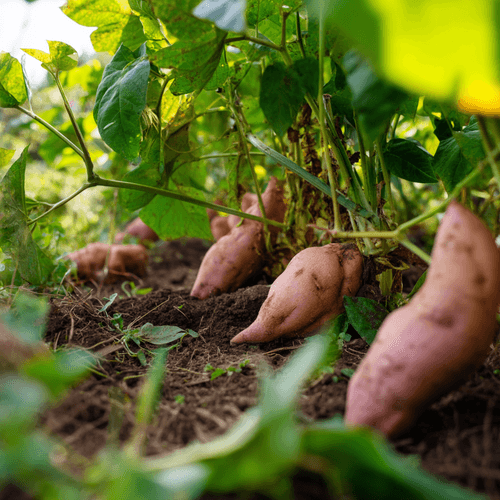Did you know ?
- 1 Sweet potatoes are not related to regular potatoes.
- 2 They come in orange, purple, white, and even yellow varieties.
- 3 Sweet potato leaves are edible and used in many cuisines.

Sweet potatoes are nutritious, starchy tuber vegetables with a naturally sweet flavor and creamy texture. Available in a variety of colors, they are enjoyed worldwide in savory and sweet dishes.
Did you know ?
View other Tuber vegetables
Nutrition
| Calories | 112 kcal |
| Proteins | 1.7g |
| Carbohydrates | 22g |
| of which sugars | 5.5g |
| Fiber | 3g |
| Fats | 0.1g |
Ripeness
Selection
Storage and ripening
Sweet potatoes are harvested when mature and cured to develop sweetness
Health
Origin
Sweet potatoes are native to Central and South America, where they have been cultivated for over 5,000 years. They spread to Polynesia, Asia, and Africa through ancient trade routes and are now a staple crop worldwide. Sweet potatoes thrive in warm, tropical, and subtropical climates.
Recipes
Gallery
There is no images yet. Submit one now to contribute to the gallery !
F.A.Q
Warnings
Often confused, but yams are starchier, less sweet, and have rough, dark skin.
Not related botanically; potatoes are less sweet and have thinner skin.
A starchy tuber, toxic if not cooked properly, unlike sweet potato.